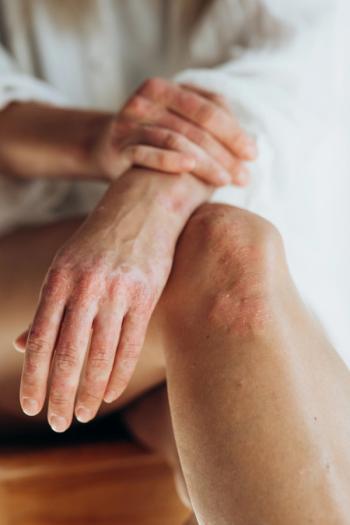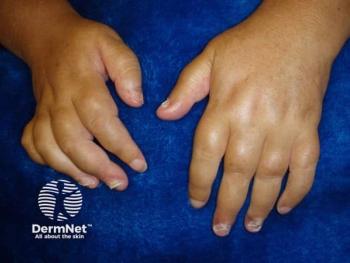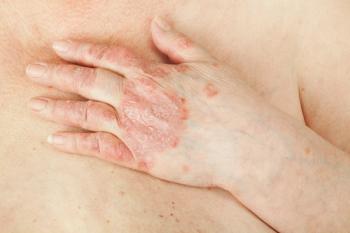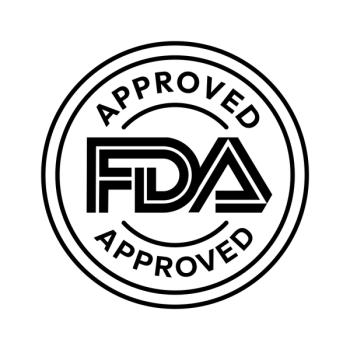
LEO Pharma Presents New Tralokinumab-ldrm Data
Tralokinumab-ldrm (Adbry; LEO Pharma) showed improvement in itch, sleep, anxiety, depression, and overall quality of life data for adolescent AD patients in newly released study data.
LEO Pharma presented new 16-week data demonstrating the use of tralokinumab-ldrm (Adbry; LEO Pharma) led to significant improvement in itch, sleep interference, anxiety and depression, and overall quality of life among patients aged 12 to 17 years with moderatetosevere atopic dermatitis (AD). The results were shared at the Western Society of Allergy, Asthma & Immunology (WSAAI) 59th annual scientific session held February 6-10, in Maui, Hawaii.
This analysis evaluated patient-reported outcomes with tralokinumab-ldrm at 150 mg or 300 mg every 2 weeks, compared to placebo at week 16 in the 52-week monotherapy phase 3 ECZTRA 6 trial (NCT0356861).
Trial results included1:
- At week 16, significantly more adolescent patients achieved improvements with tralokinumab-ldrm 150 mg (n=100) or 300 mg (n=101) every 2 weeks compared to placebo (n=100);
- When using a 4-point or greater improvement in adolescent Worst Daily Pruritus Numeric Rating Scale (NRS), it was found that placebo patients did not improve as much as their treated counterparts. (23.2% tralokinumab-ldrm 150 mg (P<.001), 25.0% tralokinumab-ldrm 300 mg (P<.001), 3.3% placebo);
- A 6-point or greater improvement in Children’s Dermatology Life Quality Index (CDLQI) (31.0% tralokinumab-ldrm 150 mg (P=.029), 39.5% tralokinumab-ldrm 300 mg (P<.001), 15.9% placebo);
- A 6-point improvement or greater in Patient Oriented Eczema Measure (POEM) (38.7% tralokinumab-ldrm 150 mg (P<.001), 46.8% tralokinumab-ldrm 300 mg (P< .0001), 10.5% placebo);
- At week 16, tralokinumab-ldrm was also associated with greater improvement vs placebo in eczema-related sleep NRS (weekly average);
- At week 16, tralokinumab-ldrm300 mg was also associated with greater improvement compared to placebo in Hospital Anxiety and Depression Scale (HADS).
Tralokinumab-ldrm is not FDA approved in adolescents (aged 12-17) and its efficacy and safety has not been fully evaluated, according to the press release.
Reference:
1. Soong et al. Tralokinumab treatment substantially improves patient-reported outcomes in adolescents with moderate-to-severe atopic dermatitis at 16 weeks. WSAAI. Feb 6-10, 2022. Maui, HI. Poster Presentation.
Newsletter
Like what you’re reading? Subscribe to Dermatology Times for weekly updates on therapies, innovations, and real-world practice tips.











